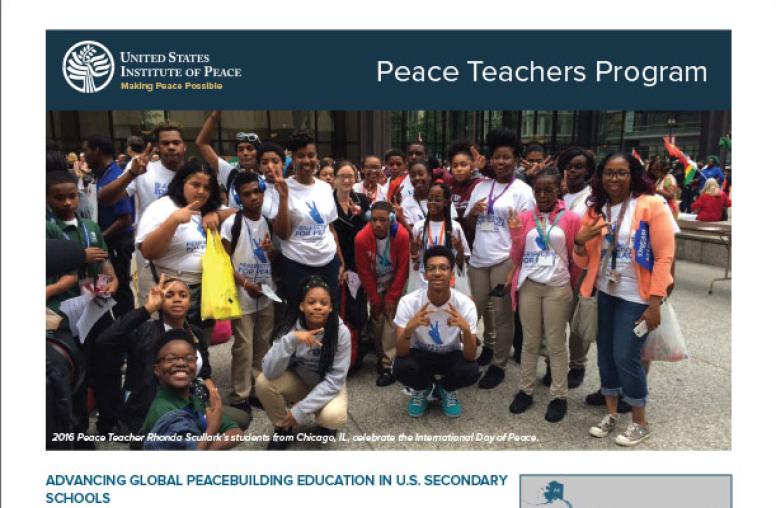The Dalai Lama Mentors USIP Youth Leaders
A USIP Project Fact Sheet
Youth Leaders: Resilient in the Face of Violent Conflict
Each year, the U.S. Institute of Peace gathers 28 youth leaders from countries confronting violent conflict to meet with His Holiness the 14th Dalai Lama in Dharamsala, India, where he encourages them in their efforts to build peace in their homelands. This annual dialogue is a partnership between USIP and the Dalai Lama, a global voice for peace and 1989 Nobel Peace Prize laureate. The project aims to strengthen the abilities of young people working to build peace in the world’s most violent regions.
Who are the youth leaders?
Youth participants in the program, between the ages of 18 and 29, are peacebuilders who have formed their own peacebuilding organizations or are in a leadership role in a youth-led organization. Many have faced war or have been uprooted by it. Some have lost friends or family to bloodshed, while others have lived in exile as refugees. Out of a commitment to end or avert violence in their countries, these leaders have developed or guided projects to build bridges across social divides that keep youth on the periphery. They engage local, national, and international leaders to end the isolation and marginalization felt by youth in their communities, which is known to drive extremism.
“From killing fields, from tragic situations, come all these incredible people. It gives me hope,” said the Dalai Lama of the youth peacebuilders he met in the initial dialogue in 2016.
What do youth leaders gain from this experience?
The youth exchange in Dharamsala includes discussions on ways to advance their peacebuilding work. Participants go on to become USIP Generation Change Fellows, a program which partners with young leaders across the globe to foster collaboration, build resilience, and strengthen capacity as they work to build peace in their communities.
What is the Dalai Lama’s role?
The Dalai Lama is one of the world’s most recognized and respected peace advocates. He is a spiritual leader both within his Buddhist community and beyond, as well as an experienced, hands-on practitioner of conflict resolution. At his residence in Dharamsala, India, the Dalai Lama spends two days conferring with the youth leaders, offering practical guidance in their struggles against prejudice, violence, and extremism, as well as inspiration to help them stay resilient in their pursuit of peace. For many, the opportunity to gather with peers from across the globe is an unprecedented source of shared knowledge, inspiration, and strength that bolsters and renews their own work.
The youth leaders can also seek the Dalai Lama’s counsel on specific challenges they face. Through the Generation Change Fellows Program training, youth leaders develop their skills regarding prejudice awareness and reduction, conflict management, and leadership while expanding their ability to work across divided communities. Participants in the program report that they have returned home with both concrete ideas and personal inspiration that have helped their peacebuilding efforts.
Outreach beyond Dharamsala
The USIP Generation Change Exchange with the Dalai Lama has extraordinary reach, with a potential audience exceeding tens of millions around the globe. Live coverage of the program reached nearly 900,000 views while engagement on Facebook and Twitter reached hundreds of thousands more




